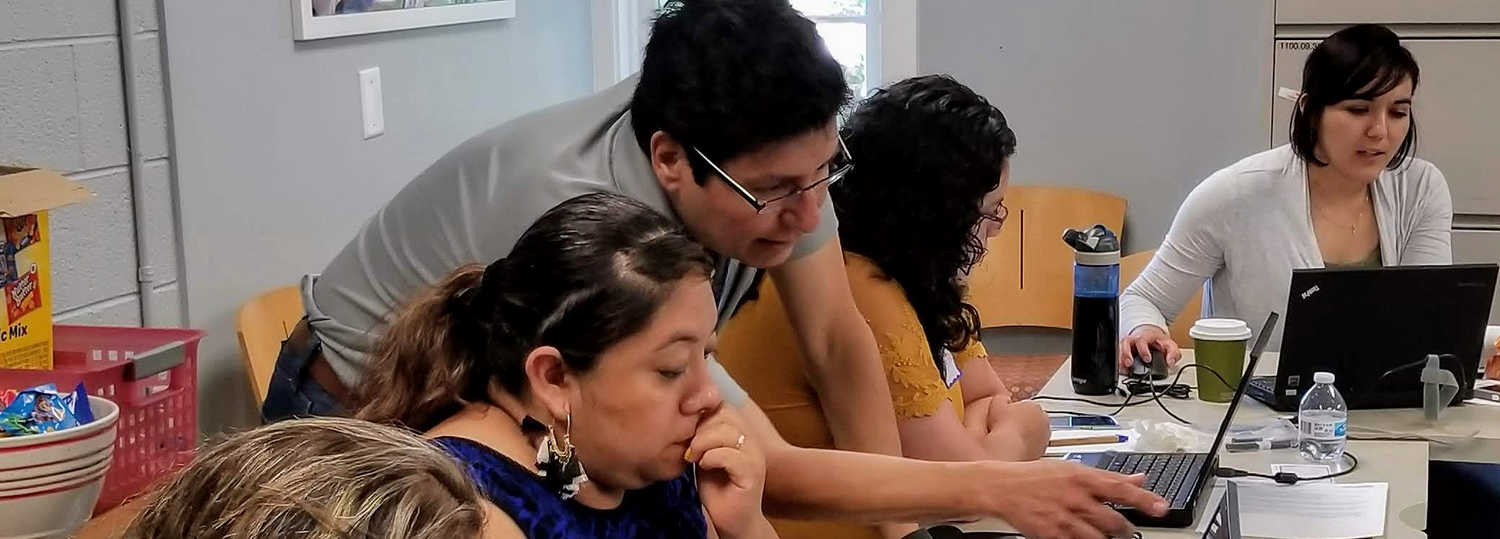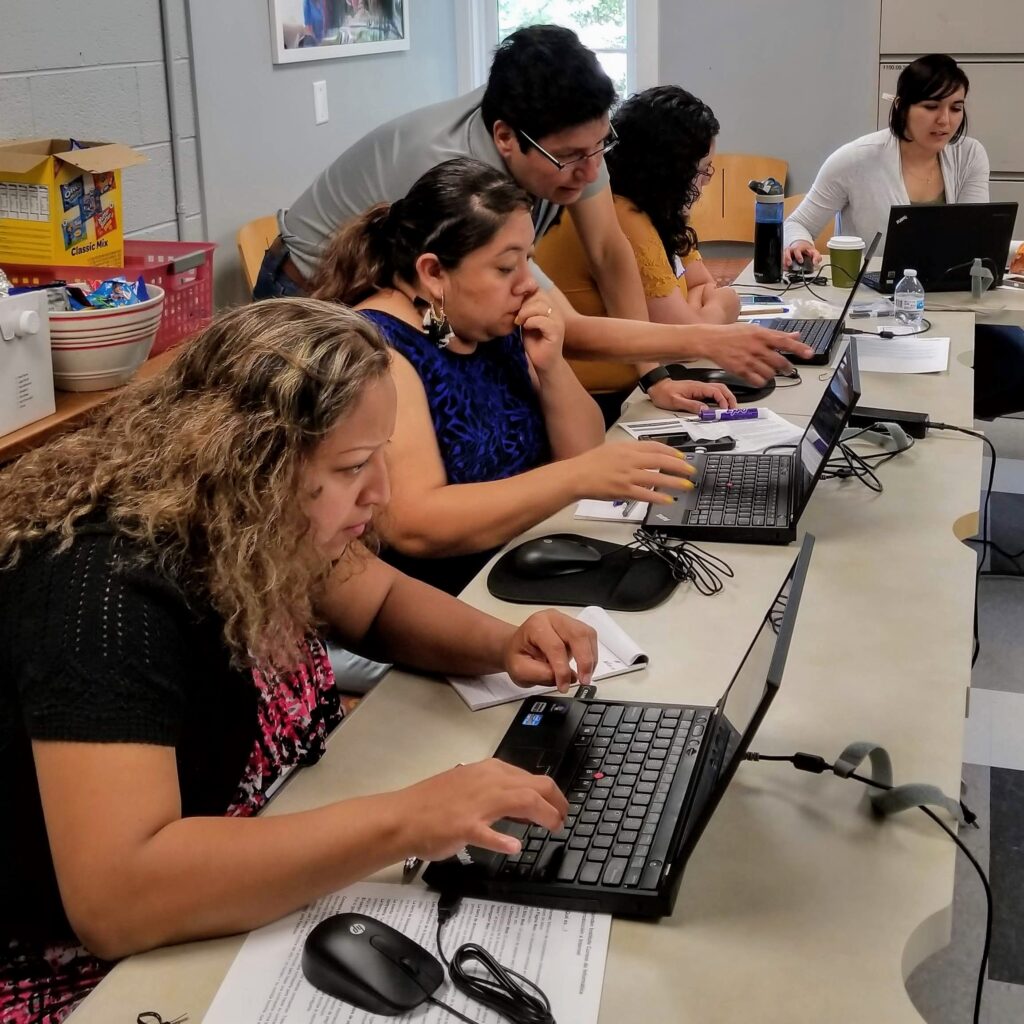In Durham, a Collaborative Effort Rises to Address Digital Equity Gap

For the upcoming ReCONNECT to Technological Opportunity forum on Feb. 10 in Raleigh, the Institute for Emerging Issues has chosen five community initiatives from throughout North Carolina that will share with our forum audience how they’re working to best leverage high speed broadband for economic growth and community improvement. Here, we profile Digital Durham.
When you think of what places in North Carolina don’t have access to high speed broadband, you may not immediately think of Durham. But in the same county that is home to two universities and the Research Triangle Park, some residents don’t have access to the internet or even a computer at home. And that’s leaving them farther behind in all areas of life—education, health, even economically.
Digital Durham is an initiative focused on addressing that issue. This collaborative brings together eight community organizations from across Durham to work on providing people with access to internet, devices and the training to take advantage of digital opportunities.

“The vision of Digital Durham is to eliminate the equity gap in Durham so that everybody has equal access in our community to the digital world,” said Laura B. Fogle, Digital Durham’s founder.
Fogle started the group in 2016 after seeing how the digital equity gap was leaving certain students behind. In her previous job as an instructional technology facilitator at Durham Public Schools, she saw clear examples of how lack of access to technology was putting students at a disadvantage: a student having trouble writing an essay on a cell phone with a severely cracked screen; another who, even after receiving a grant-funded computer, couldn’t use it because his home wasn’t connected to the internet.
And education is only one aspect of life where technology is critical to success. Digital skills impact our ability to apply to a job, communicate with health care providers, and access money in a bank.
“For Durham, and for North Carolina as a whole, to reach our potential in any of these areas, we need to be taking advantage of these resources, because otherwise, it’s really impeding our ability to progress as a state,” said Fogle.

Digital Durham, which meets about once a month, is made up of groups from the public, private and non-profit sectors. The group shares best practices, collects data, and informs community leaders to help them understand the issue of digital equity. Fogle says the group is still young, but has started to think strategically about the future. She sees their involvement in the ReCONNECT to Technological Opportunity community cohort as an opportunity to focus their direction and also brainstorm with and learn from the other groups doing similar work.
“For us to be able to talk to other sister organizations and share ideas and strategies with them is really powerful,” said Fogle. “We are really focused on connecting the people who aren’t connected, but for some of the other groups [in the cohort], that’s not their focus, so what can we learn from them that can really help our mission too?”
Learn more about Digital Durham during the Institute for Emerging Issues ReCONNECT to Technological Opportunity forum on February 10 in Raleigh.
- Categories:


